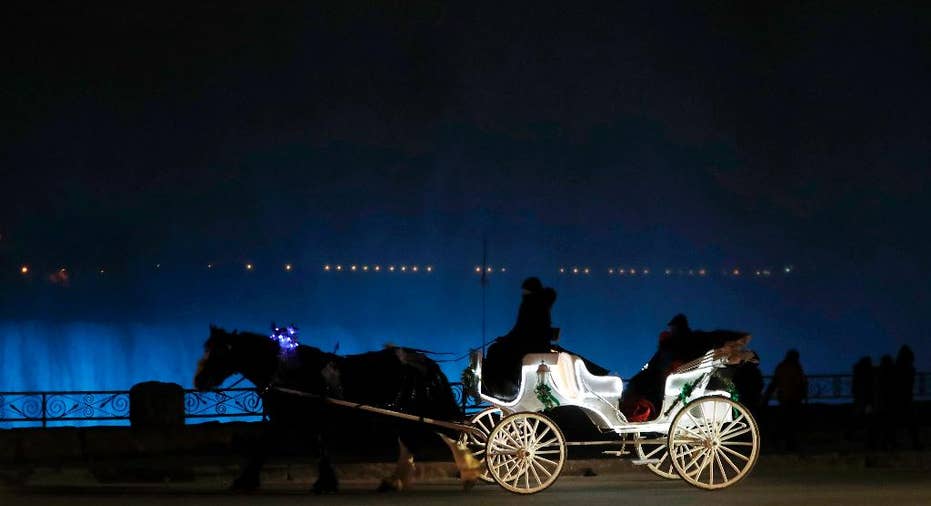AP Photo Gallery: Niagara Falls lit up on dark winter nights

NIAGARA FALLS, Ontario – The nightly spectacle of Niagara Falls lit up after dark just got more spectacular.
A $3 million upgrade saw the installation of 1,400 new high-tech lights called luminaires that beam brighter and more vivid rainbows of light from Canada onto the famous waterfalls.
Mixed together, the separate red, green, blue and white LED units can illuminate the waterfalls against the night sky in endless combinations that range from subtle hues to deeply saturated colors.
Perched on the upper level of an 1899 building known as "Illumination Tower," the high-intensity system unveiled Dec. 1 replaced a bank of 21 spotlights, each 30 inches in diameter, that were equipped with colored gels.
The illumination highlights the sections of Niagara known as American Falls and Canadian Horseshoe Falls.
The first major upgrade in 20 years has more than doubled the previous lighting levels and filled in gaps the old spotlights could not reach. Officials expect it will reduce energy consumption by 60 percent.
The shorter the days, the longer the night light shows, meaning winter offers prime viewing. Visitors unwilling to brave the frigid air outdoors can watch from the windows of hotels and restaurants on the Canadian shore. The lights are on from 5 p.m. until midnight from November through January. For most of summer, they shine from 9 p.m. to midnight.
Special occasion lighting will continue: The waterfalls have been awash in pink for breast cancer awareness, for example, and glowed in the colors of the French flag after last year's Paris attacks.
The falls were lit for the first time in the summer of 1860 when 200 lights similar to those used for signaling help at sea shone in honor of a visit from the Prince of Wales.
Nightly illumination began in 1925 with the formation of the Niagara Falls Illumination Board, whose members represent the cities of Niagara Falls, Ontario, and Niagara Falls, New York, along with the Niagara Parks Commission, Niagara Falls State Park and Ontario Power Generation. The board, whose organizations split the cost of the upgrade, has kept the lights on most nights since with a few exceptions. They were turned off during World War II, for example, to conserve power.



















